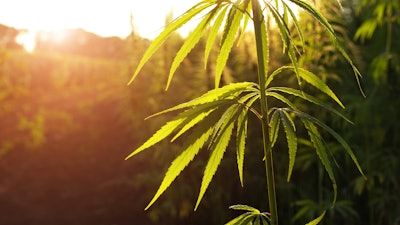
An updated Farm Bill is currently under review by the House Agriculture Committee and one proposed amendment could be bad news for companies that make and sell products with hemp-derived THC and other cannabinoids.
The 2018 Farm Bill legalized industrial hemp that has a tetrahydrocannabinol (THC, which is the psychoactive component of marijuana) concentration of no more than 0.3% by removing it from schedule I of the Controlled Substances Act.
But a new amendment proposed by U.S. Rep Mary Miller seeks to cut off the supply of intoxicating hemp-based products that have come to market in the years since the 2018 Farm Bill passed.
“I am offering an amendment to close the loophole that legalized intoxicating hemp products like ‘Delta-8,’ which is being marketed to teenagers and children. These drug-infused products are often sold in colorful packaging next to candy and snacks, which parents strongly oppose!” Miller said on X.
Specifically, the amendment would change the definition of hemp in the Agricultural Marketing Act of 1946 to only include naturally occurring, naturally derived, and non-intoxicating cannabinoids. The measure would also target tetrahydrocannabinolic acid (THCA), a naturally occurring cannabinoid without psychoactive qualities when consumed in its unprocessed form. However, THCA can be converted into a psychoactive THC chemical when heated, smoked, or vaped.
The amendment would effectively ban all ingestible hemp products with any amount of THC.
The Indigenous Cannabis Industry Association said it is deeply concerned about Rep. Miller’s amendment and the significant threat it poses to the U.S. hemp industry.
“This would not only impact potentially impairing products like Delta-8 but would also extend to non-intoxicating CBD products with any quantifiable amount of THC. Such a broad prohibition would effectively eliminate 90-95% of the hemp products market, jeopardizing the livelihoods of countless farmers, entrepreneurs, and Indigenous communities relying on the hemp industry for economic sustainability,” said ICIA Founder Rob Pero. “Furthermore, the proposed redefinition of hemp to include THC-A calculations could wreak havoc in the fiber and grain market, exacerbating the challenges faced by Indigenous farmers and producers.”
The National Cannabis Industry Association (NCIA) voiced support for increasing the total allowance for total THC in hemp crops from 0.3% to 1%, which it said is consistent with the policies of other hemp-producing nations. NCIA said the current THC threshold has forced many farmers to exit the industry for fear that they will have to destroy an entire crop if the total content is slightly above this arbitrary threshold.
The NCIA also advocated for limitations on THC content per-serving for finished hemp-derived products.
“Congress has the opportunity to protect public health and safety while fostering the success of thousands of small businesses in the cannabis industry by enacting sensible regulations for both hemp- and marijuana-derived cannabinoid products,” said Aaron Smith, CEO & Co-founder of the National Cannabis Industry Association. “The hemp-derived THC business is booming in this country and these products are here to stay. It’s just common sense to enact regulations that ensure they are tested for safety and potency, labeled accordingly, and not made available to minors.”